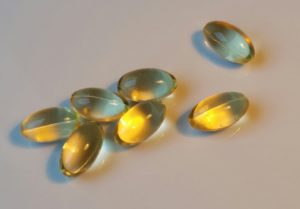 A recent study found that giving daily vitamin D supplements to children with severe asthma and low vitamin D levels did not prevent severe asthma attacks, reduce the time to an asthmatic attack, or enable the children to reduce the maintenance dose of an inhaled corticosteroid. Very disappointing!
A recent study found that giving daily vitamin D supplements to children with severe asthma and low vitamin D levels did not prevent severe asthma attacks, reduce the time to an asthmatic attack, or enable the children to reduce the maintenance dose of an inhaled corticosteroid. Very disappointing!
As of 2018, it is estimated that 5.5 million children in the US have asthma, and that asthma led to more than 546,000 emergency department visits and 80,000 hospitalizations. So the researchers started the study hoping that vitamin D3 supplements could help with asthma attacks.
The well-done year long study recruited children (6 to 16 years old) from 7 US medical centers. They were assigned randomly to different groups (vitamin D or placebo), and with no one knowing who got vitamin D and who didn't. The children took 4000 IU/day of vitamin D3 or a placebo for 48 weeks, and all were maintained with a low-dose of inhaled corticosteroid (fluticasone propionate).
The findings contrast with earlier observational studies (basically a snap-shot of groups of people) that found a link with severe asthma and lower vitamin D levels. Meanwhile, other well-done studies (women assigned randomly to different groups, etc) have found no protective effect from vitamin D3 supplementation during pregnancy - that is, it did not protect children up to the age of 6 from asthma.
Excerpts from Science Daily: Compared to placebo, vitamin D has no benefit for severe asthma attacks, study finds
Contrary to earlier results, vitamin D supplements do not prevent severe asthma attacks in at-risk children, according to the first placebo-controlled clinical trial to test this relationship.
"The reason that's important is there are colleagues around this country and worldwide who are testing vitamin D levels for kids with asthma and giving them vitamin D," said study lead author Juan C. Celedón, M.D., Dr.P.H., chief of pediatric pulmonary medicine at UPMC Children's Hospital of Pittsburgh. "As a system, it costs a lot of money to run all these tests and give the supplements. We've shown no benefit for children with moderately low vitamin D levels."
For three years, the Vitamin-D-Kids Asthma (VDKA) Study followed nearly 200 children ages 6 to 16 across seven different U.S. hospital systems. All had at least one asthma attack during the year before the study began.
Half of the participants were randomized to receive 4,000 IU of vitamin D per day, and the other half got placebo pills. No one involved in the study knew which type of pill each participant was getting.
All of the children had vitamin D levels low enough that supplements should have an effect -- if vitamin D truly is beneficial for reducing severe asthma attacks -- but the study excluded children with severe vitamin D deficiency because it would be unethical to withhold it in those cases.
Compared to placebo, vitamin D did not reduce the number of asthma attacks participants experienced or their reliance on inhaled steroids.
